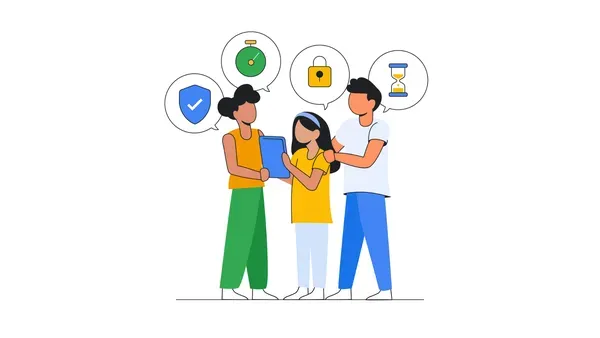Google is throwing its weight behind a controversial stance on teen social media use. In a new blog post, the tech giant partnered with the Family Online Safety Institute (FOSI) to argue against blanket age bans, instead pushing for 'thoughtful restrictions' that give teens agency while keeping them safe. The timing comes as Europe and the U.S. debate stricter rules for under-16 users.
Google just waded into one of the most heated debates in tech policy. The company released a blog post today featuring Stephen Balkam, CEO of the Family Online Safety Institute, making the case against sweeping age restrictions on social media platforms.
'Across Europe and the U.S., there has been growing support for broad rules, such as saying no one under sixteen should be allowed on social media,' Balkam writes in the Google blog post. 'While I understand the instinct, blanket bans often create a false sense of security.'
The timing isn't coincidental. Lawmakers on both sides of the Atlantic are pushing harder restrictions on teen social media access. The UK's Age Appropriate Design Code already requires platforms to prove they're protecting minors, while several U.S. states have passed laws requiring parental consent for users under 16.
Google appears to be positioning itself as the reasonable middle ground. Instead of outright bans, the company is promoting what Balkam calls 'thoughtful restrictions' - customized controls that parents and teens develop together. The approach conveniently showcases Google's existing tools like Family Link and YouTube's supervised experience.
'Instead of forcing parents to dig through settings menus and guides, imagine being able to ask an AI assistant like Gemini or ChatGPT to configure controls for you, customized by age, app and device,' Balkam suggests. This vision of AI-powered parental controls could give Google a competitive edge as regulators demand better safety features.
The blog post reveals how quickly AI has transformed the debate around teen safety. 'AI has swept through classrooms faster than any other technology I can remember,' Balkam notes. Teachers use it for lesson plans, students for learning, professors for research. But nobody's figured out the guardrails yet.
That uncertainty creates both opportunity and risk for Google. The company's Gemini AI could become the go-to tool for managing teen digital lives - if parents trust it. But the same technology raising safety concerns could backfire if regulators decide blanket restrictions are simpler than nuanced AI-driven solutions.












